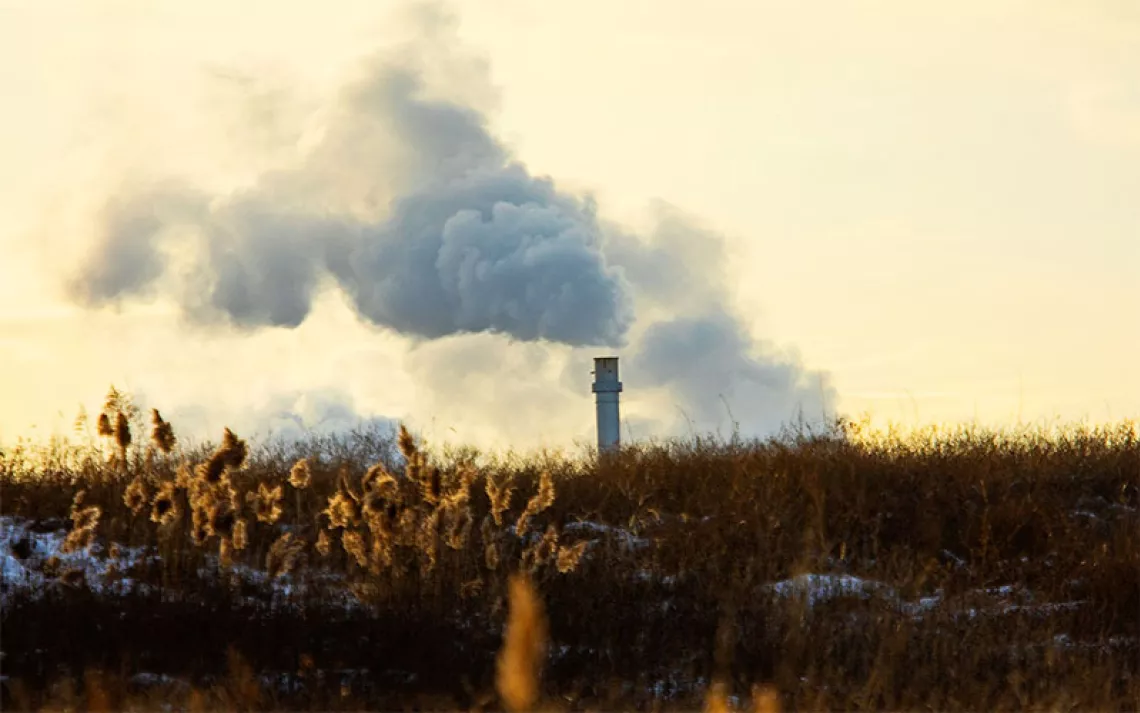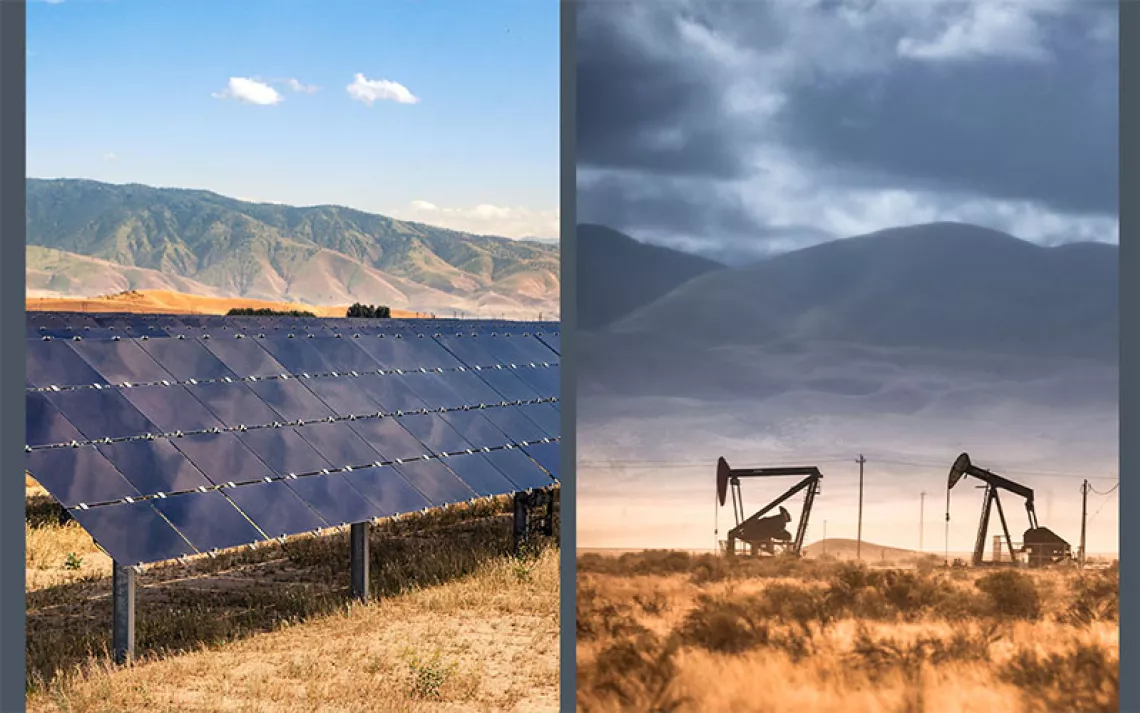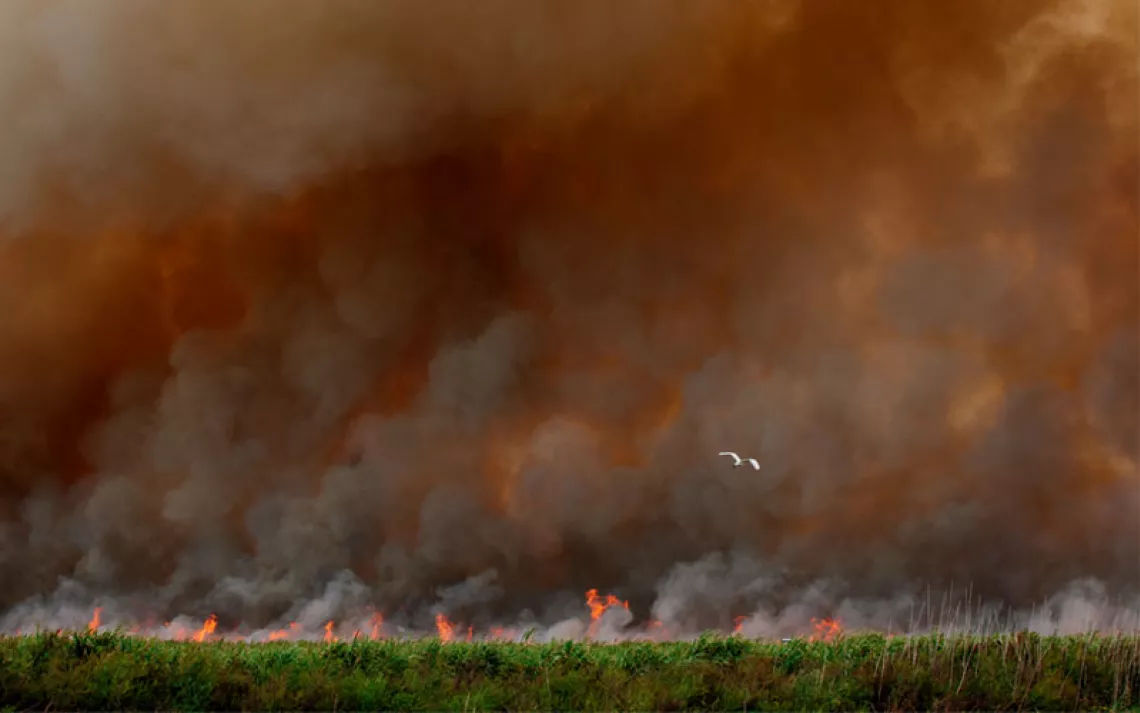Breathing Room
Orcas have no protections against air pollution

Illustration by Beppe Giacobbe
When the sun breaks through winter's seemingly endless drizzle, Seattleites change their plans, rush to find sunglasses, and get outside before the rain returns. That's what I did when blue skies appeared one unseasonably warm January day. As I yanked on my biking shorts, I imagined gliding alongside the Cedar River a few miles south of the city, where the snow-covered cone of Mt. Rainier is often visible and the autumn salmon run still echoes in January's waters.
But a quick glance at the weather forecast ruptured my idyllic vision for the day. Although the skies were clear, the National Weather Service had issued an "air quality alert." The high temperatures and lack of rain that made the day so appealing had also allowed a polluted air mass to settle over Seattle. Ignoring the "air stagnation warning"—issued to protect the public from the smoke, dust, and pollution caused by industry and cars—could mean enormous health risks for me and other people exercising outdoors.
The air quality alert made me tearful and angry. The warning's message: If you have asthma, you are vulnerable. If you are elderly, or an infant, or a woman over 50, you are vulnerable. Fingering the red asthma inhaler I carry in case of an emergency, I tried to understand my risk. I only use the inhaler once or twice a year, and never when I exercise. "What are my chances of having an attack?" I asked myself as I stared at my bike. This was like the smog in the photos of China and the inversion over Salt Lake City that made the air so thick it was visible. I felt the shroud of smog weigh on me.
I moved to Seattle from Philadelphia, drawn by the postcard beauty of orca whales leaping out of Puget Sound. The nearby forests and stunning views of mountain peaks held the promise of a healthier life. Getting outside to exercise is the way I come up for air before drowning in the stress of awful news reports, paperwork, and environmental research. Now, if I choose to exercise outdoors, especially biking to and from work, I avoid rush hour. Like exercising during an air quality alert, breathing in fine particulate matter can aggravate lung disease, high blood pressure, and asthma.
Throughout the year, I teach workshops for college students and environmental educators about keeping toxins out of our bodies. I lead low-tide walks with high school students, who like to hold small crabs in their palms. Yet I hadn't considered the connection between the health of other species and my own until I learned about the threats facing the 85 killer whales remaining in the urbanized waters near Seattle. Now when I hear about my own environmental health risks, I also consider risks to orcas.
On a typical day between May and September, as many as 20 idling boats pollute the air just above the water while humans wait for the spectacle of a whale's next breath. Orcas, including our endangered southern residents, usually take a breath every three to five minutes. Raising their blowholes above the surface, they open and close what is most like one of our nostrils in a majestic display.
According to a 2011 Vancouver Aquarium study, orcas have little self-defense against polluted air. They do not have filtering sinuses, nor do they have olfactory glands that would allow them to smell dirty air and perhaps avoid it. They are also diving mammals, so the pressure in orcas' lungs causes inhaled pollutants to reach their blood and vital organs rapidly. In the United States, people have specific protections from polluted air, but those protections don't extend to other species.
During the winter of 2015, when the air pollution warnings returned to our region for the second year in a row, I chose an alternative to biking along the Cedar River. Pulling my new rowing machine across the pine floor of my living room, I exercised in front of the glass patio doors facing my winter garden. I substituted gospel music for birds. I imagined gliding along the river, seeing eagles fight with crows above, and I thought of a newborn orca coming up for air.
 The Magazine of The Sierra Club
The Magazine of The Sierra Club



